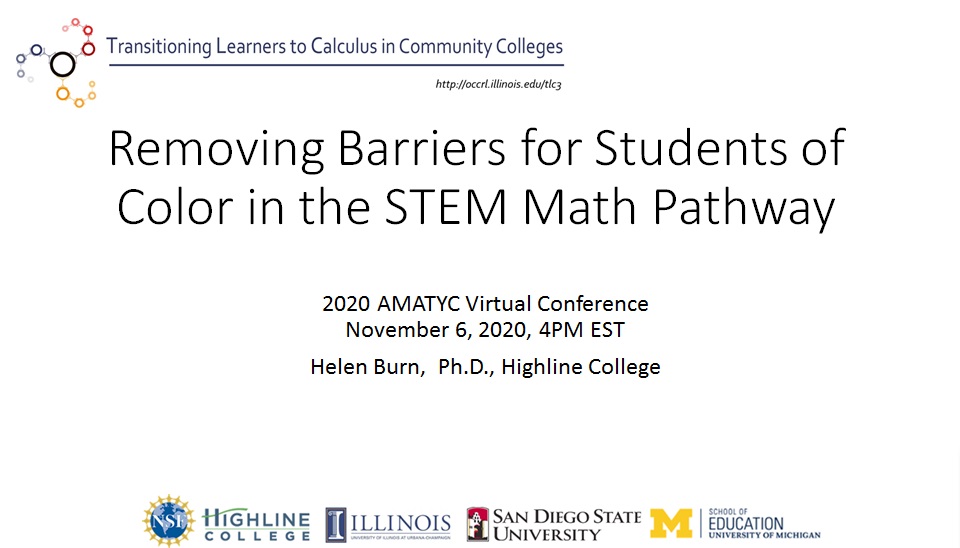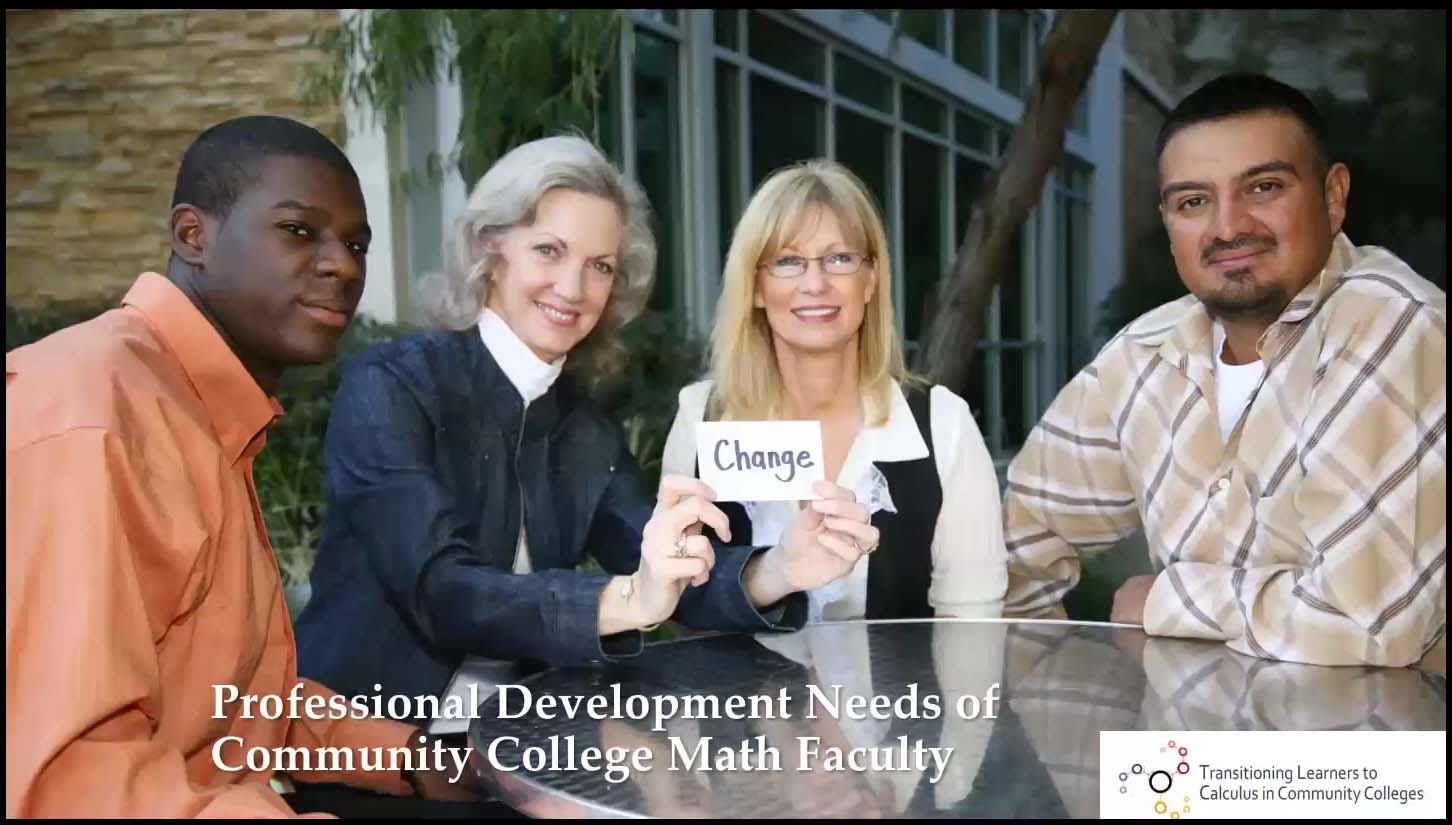Videos

Removing Barriers for Students of Color in the STEM Math Pathway
This interactive session was held as part of the 46th Annual Conference of the American Mathematical Assocation of Two-Year Colleges. The virtual conference session was held November 6, 2020. In the session, Dr. Burn engaged participants with the change tool developed in the NSF-funded project Transitioning Learners to Calculus in Community Colleges (TLC3, IUSE 1625918) that addresses multiple domains of the STEM math pathway and is designed to identify and remove barriers for underrepresented minority students in the STEM math pathway. The tools shared in the session can be accessed here.

Relational Strategies and Promising Practices in Math Instruction
Relational strategies and promising practices such as validation, reception, appropriate disclosure, cultural relevance, and performance monitoring can improve the success of historically underserved or underrepresented students in your classroom (Wood, Harris III, and White, 2015). This webinar explains these practices and provides examples of how faculty of four Minority-Serving Community Colleges incorporated them in classrooms observed in the Transitioning Learners to Calculus in Community Colleges project (NSF IUSE 1625918). The webinar will be of most interest to mathematics instructors, but the content is also relevant to anyone who mentors mathematics faculty or offers faculty professional development.

Professional Development Needs of Community College MathFaculty
This webinar presents findings from a recent analysis of professional development needs among community college math faculty. Data in this presentation was derived from the Community College Instructional Development Inventory (CCIDI). This inventory is designed to identify areas in need for professional development for college faculty. A special sampling of the CCIDI was conducted as part of the Transitioning Learners to Calculus (TLC3) grant funded by the National Science Foundation (NSF). This webinar focused on a subset of data that addresses the unique disciplinary needs for professional development in mathematics that can improve educational outcomes for underserved students of color.

